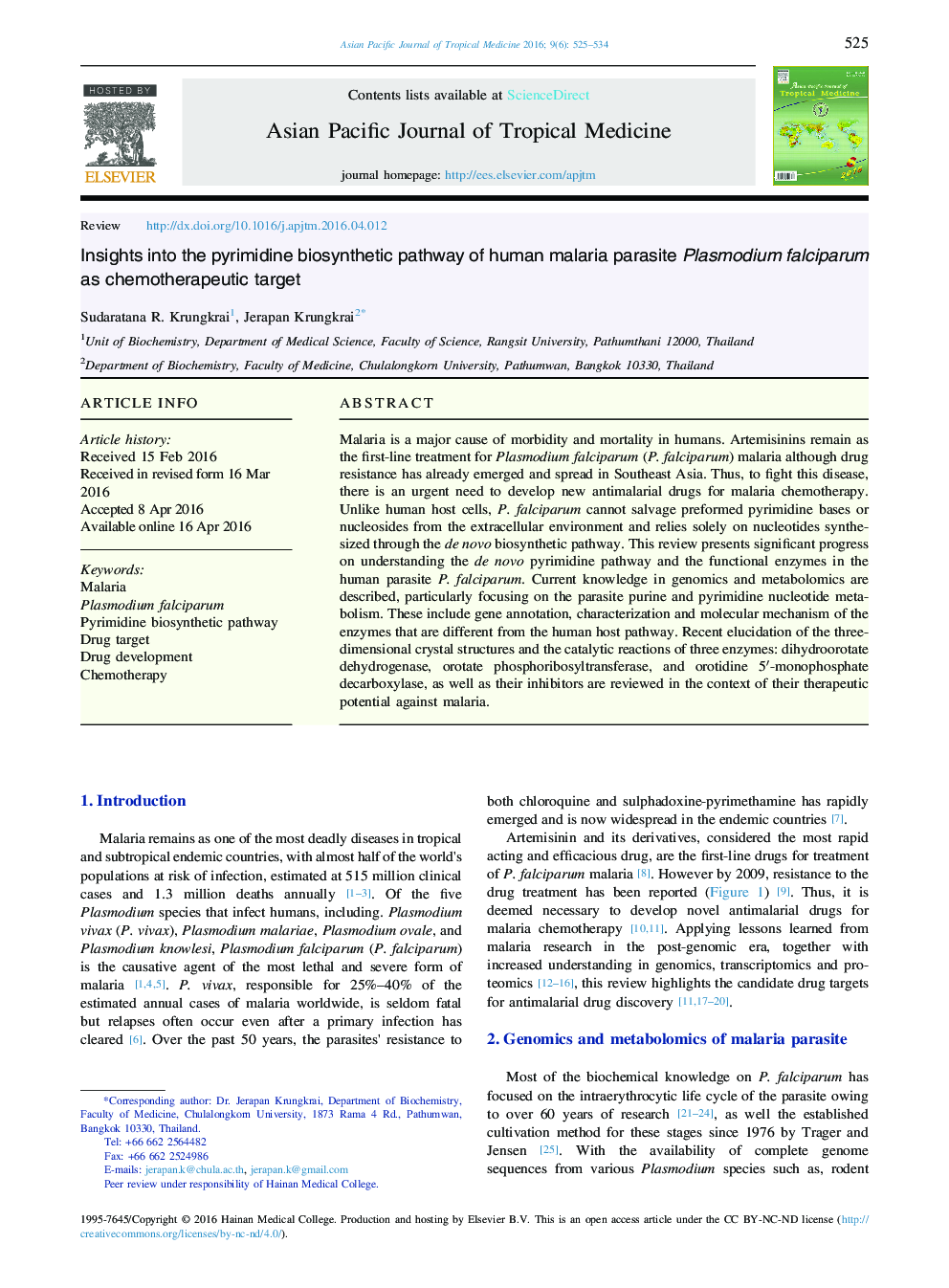| Article ID | Journal | Published Year | Pages | File Type |
|---|---|---|---|---|
| 3455159 | Asian Pacific Journal of Tropical Medicine | 2016 | 10 Pages |
Malaria is a major cause of morbidity and mortality in humans. Artemisinins remain as the first-line treatment for Plasmodium falciparum (P. falciparum) malaria although drug resistance has already emerged and spread in Southeast Asia. Thus, to fight this disease, there is an urgent need to develop new antimalarial drugs for malaria chemotherapy. Unlike human host cells, P. falciparum cannot salvage preformed pyrimidine bases or nucleosides from the extracellular environment and relies solely on nucleotides synthesized through the de novo biosynthetic pathway. This review presents significant progress on understanding the de novo pyrimidine pathway and the functional enzymes in the human parasite P. falciparum. Current knowledge in genomics and metabolomics are described, particularly focusing on the parasite purine and pyrimidine nucleotide metabolism. These include gene annotation, characterization and molecular mechanism of the enzymes that are different from the human host pathway. Recent elucidation of the three-dimensional crystal structures and the catalytic reactions of three enzymes: dihydroorotate dehydrogenase, orotate phosphoribosyltransferase, and orotidine 5′-monophosphate decarboxylase, as well as their inhibitors are reviewed in the context of their therapeutic potential against malaria.
